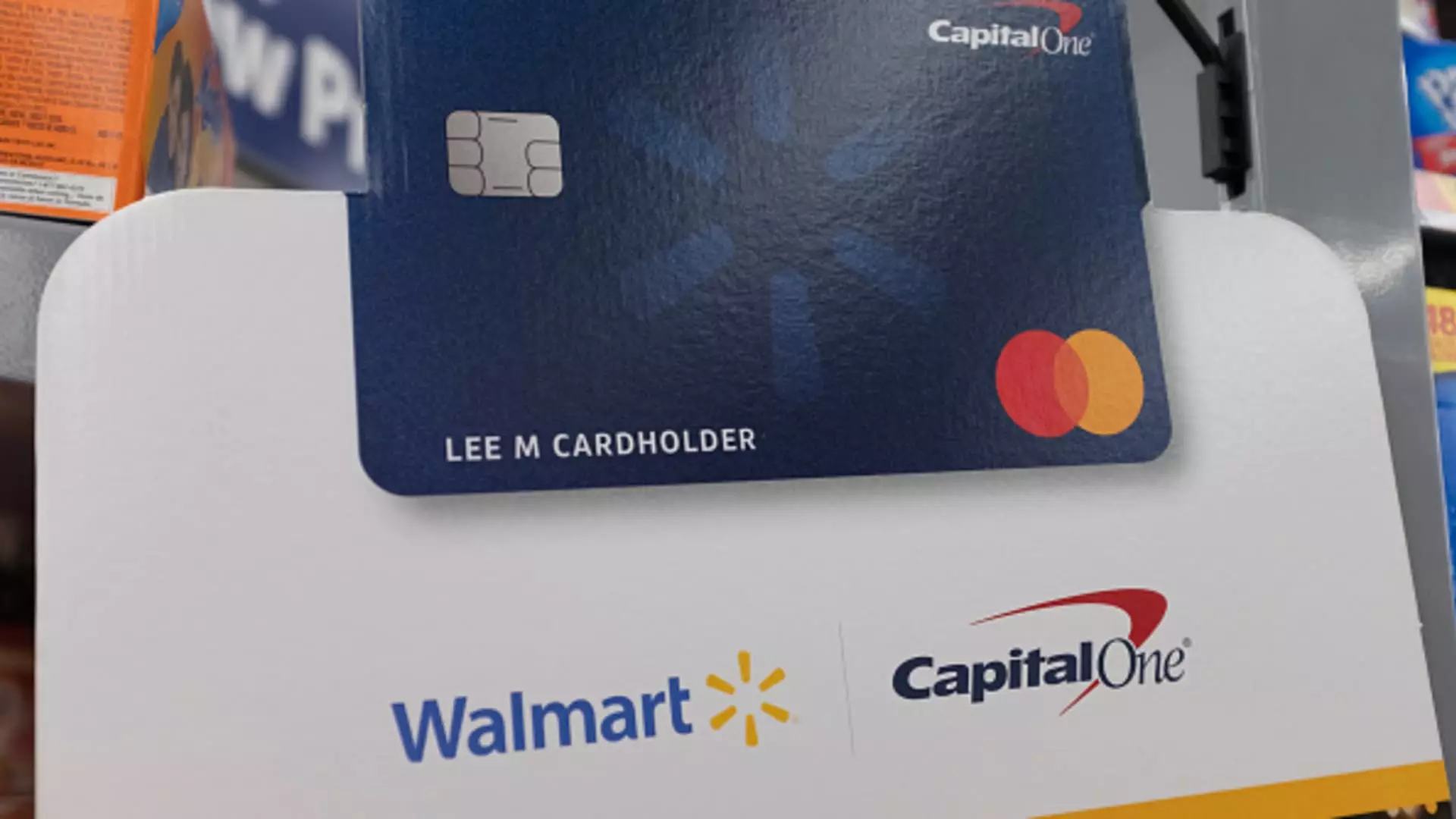Walmart’s recent venture into the financial services sector exemplifies a pivotal shift in strategy that must be examined closely. With its majority-owned fintech startup, OnePay, the retail giant is not only embracing the financial landscape but also aiming to disrupt it. The launch of two new credit cards in partnership with Synchrony marks a significant moment, demonstrating Walmart’s ambition to create a comprehensive ecosystem for financially underserved individuals. However, the question looms: Is this a genuinely transformative initiative or simply a shrewd business move steeped in traditional practices?
The Breakup with Capital One
An intriguing aspect of this development is Walmart’s abrupt split from Capital One, their credit card partner since 2018. The decision to sue and extricate itself from the collaboration well ahead of schedule is not merely a business tactic; it signifies Walmart’s desire to take greater control over its financial offerings. By dismantling ties with Capital One, Walmart has acknowledged that, in the new age of digital consumerism, a personalized approach is paramount. The ambitious launch of OnePay serves not only to elevate Walmart’s brand but also to enhance the shopping experience, harnessing the power of data to target customer needs directly. This move can inspire businesses beyond retail to reconsider their partnerships and operations in an increasingly competitive landscape.
A Step Towards Empowerment or Surveillance?
OnePay’s mission — to serve as a one-stop shop for those neglected by conventional banking — raises a controversial dichotomy between empowerment and surveillance. The implementation of a general-purpose credit card alongside a store-specific card might appear as flexibility for consumers, but it is pivotal to question the ramifications for financial privacy. With the integration of features like peer-to-peer payment systems and a comprehensive mobile app, OnePay can gather extensive consumer data. In the hands of a retail giant, this data can empower customers when used ethically, yet it risks veering into consumer manipulation if not handled with utmost care. The emphasis on transparency and simplicity touted by OnePay can thus appear as a comforting veil over the more sinister implications of data-driven strategies.
Consumer Experience: Genuine Innovation or Re-packaged Convenience?
While OnePay asserts that its goal is to create an experience that is “transparent, rewarding, and easy to use,” one must remain skeptical about the fine print of these offerings. Traditional banking institutions have laid out similar promises in the past, often leading consumers into complex agreements laden with hidden fees and unfulfilled rewards criteria. It is essential for potential customers to critically evaluate the terms associated with these new cards, beyond the initial allure of convenience. The financial ecosystem is littered with companies that have failed customers by prioritizing profit margins over genuine service innovation.
In light of these developments, Walmart’s foray into fintech through OnePay encapsulates a blend of opportunity and risk. This initiative stands as a testament to the company’s commitment to securing its position at the forefront of retail innovation. However, consumers must remain vigilant and discerning as the lines between convenience, empowerment, and data commercialization blur. As we observe the evolution of OnePay and its impact on the market, it becomes clear that only time will tell if Walmart’s vision truly aligns with consumer welfare or if it is merely a savvy corporate strategy draped in consumer-friendly rhetoric.

